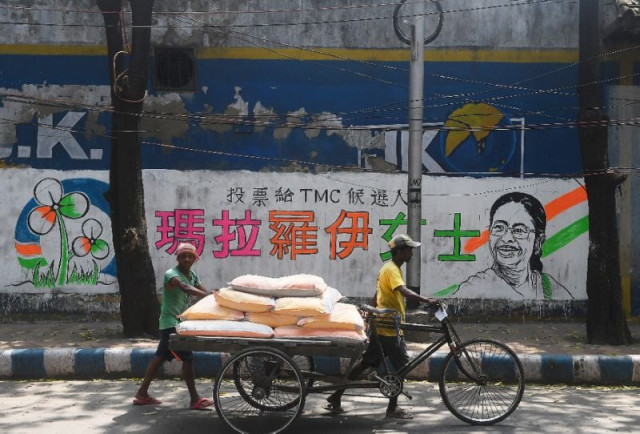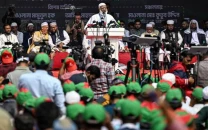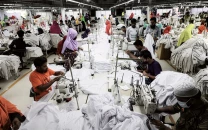Indian election campaign takes on a Chinese character
Chinese Hakka people first came to Kolkata more than two centuries ago

Delivery men walk past a mural bearing Chinese characters in support of a Trinamool Congress candidate in Kolkata. PHOTO: AFP
Slogans for local state chief minister Mamata Banerjee and against Prime Minister Narendra Modi, whose ruling party is trying to muscle in on West Bengal seats, have started appearing across the city's Chinatown.
Chinese Hakka people first came to Kolkata more than two centuries ago, but India's biggest Chinatown has traditionally kept politics at arm's length.
India's six-week-long election starts on Thursday and this time the Hindu national leader sees the eastern state as a key battleground in his bid for a second term.
In response, Banerjee's Trinamool Congress party has led the offensive for Chinese votes with graffiti and slogans on local walls.
Local Chinese youths have been helping the party spread its message, according to Swapan Samaddar, a city councillor whose district includes Chinatown.
Pak-India confrontation will have 'serious implications for regional peace': China
"Many Chinese youths are supporters and they are lending a hand," he said.
One graffiti image shows Modi being blown away in a Banerjee storm, while another plays on the prime minister's description of himself as the national "watchman", saying in characters: "Watchman is a thief".
"It's good to send the message of the ruling Trinamool Congress to the Chinese community in China Town. We are happy to see it," said Chen Khoi Kui, secretary of the Chinese Youth Club, a welfare organisation.
"It’s a novel venture that draws the attention of voters."
Despite the deep historical roots, the Chinese population has dwindled in recent decades to about 1,000 people. The district is still renowned for its Chinese restaurants which are popular in India even though rivalry with the giant neighbour is intense.
"Many Chinese who have been living this city for a long time still prefer to speak in their own language amongst themselves," said Chen.



















COMMENTS
Comments are moderated and generally will be posted if they are on-topic and not abusive.
For more information, please see our Comments FAQ